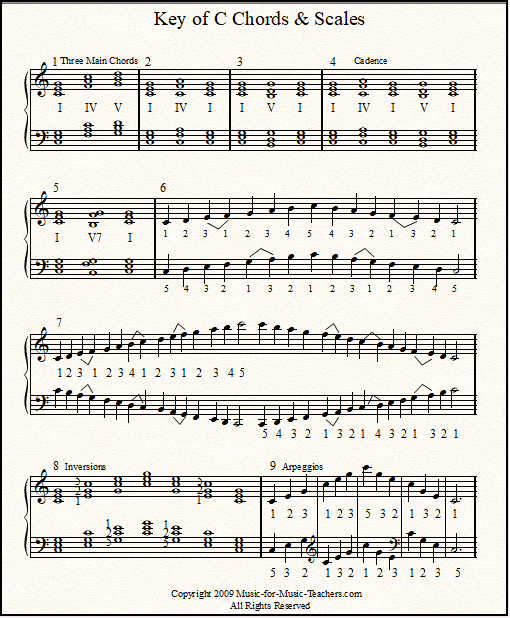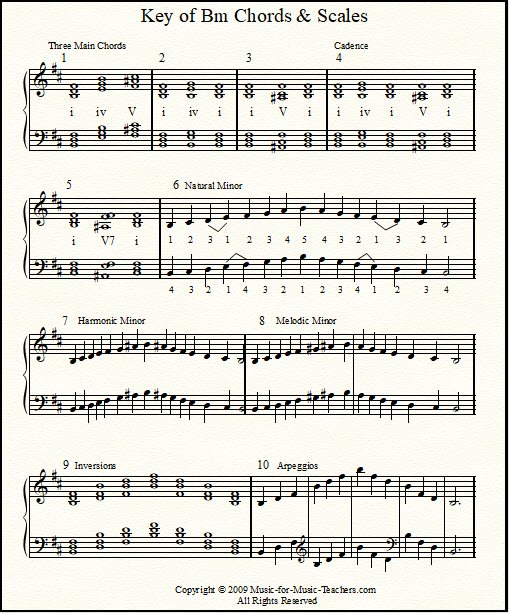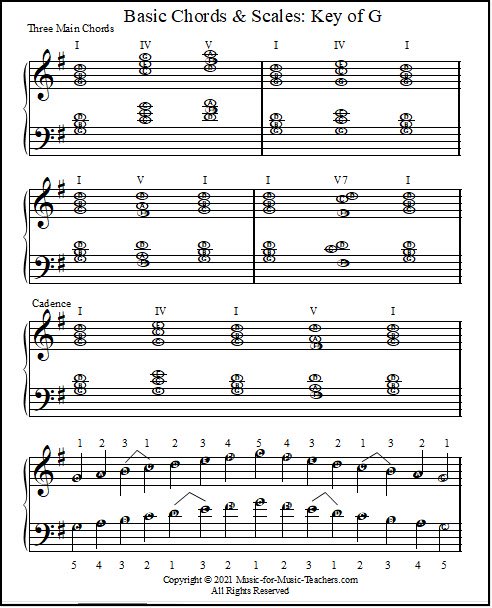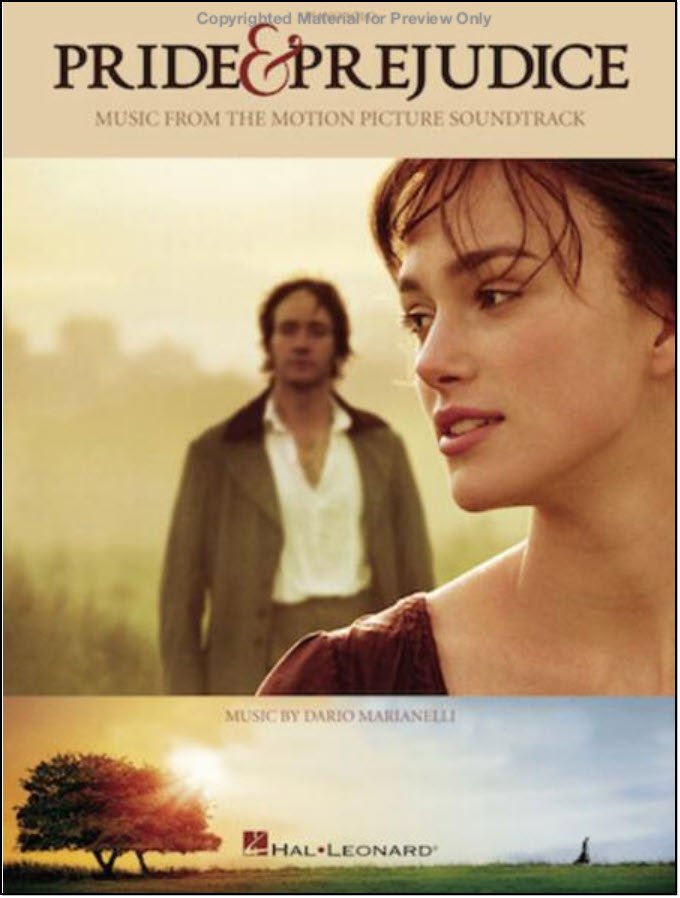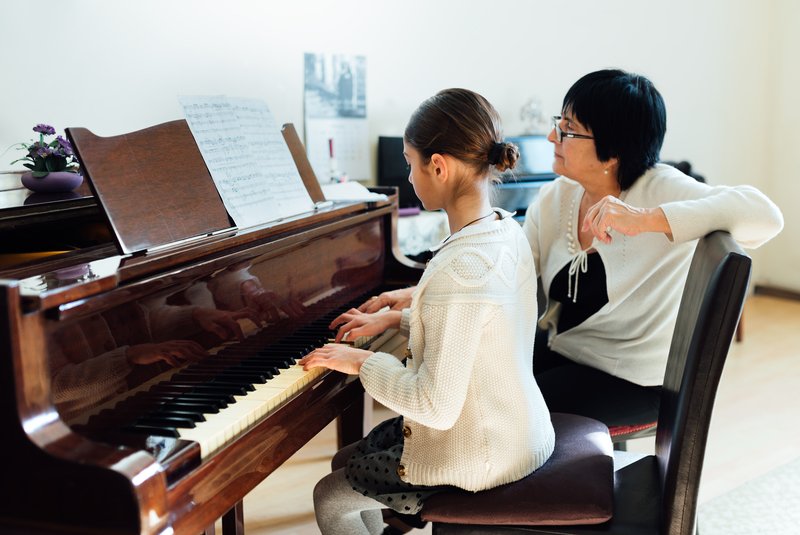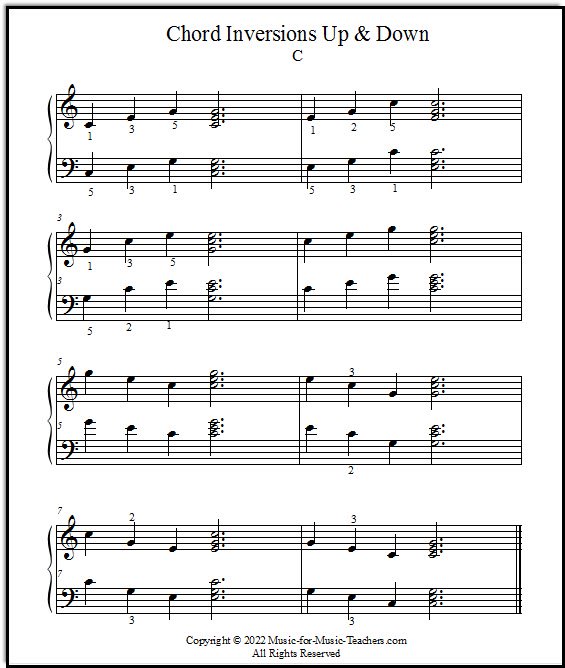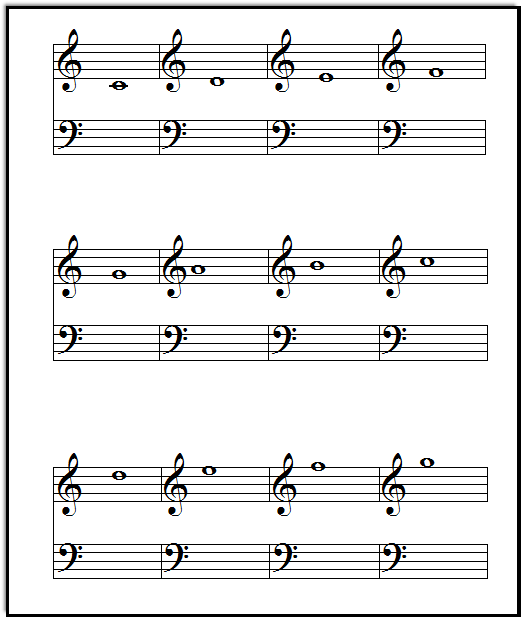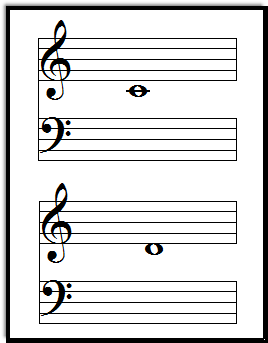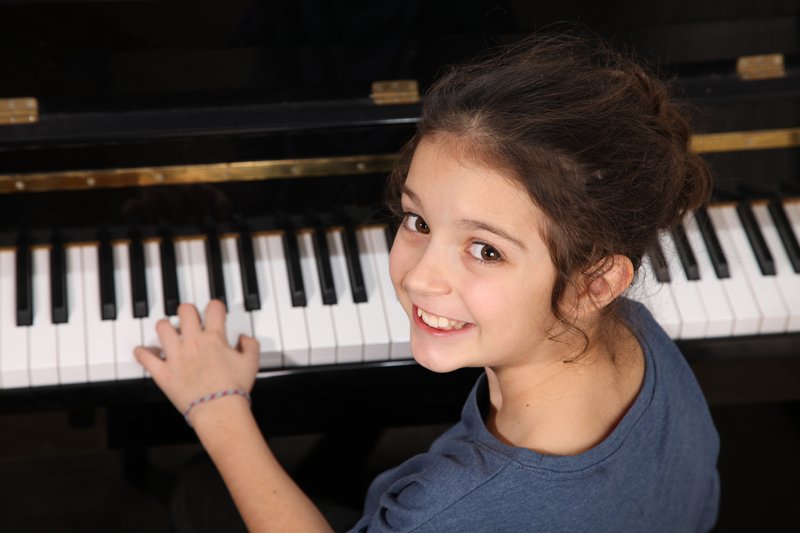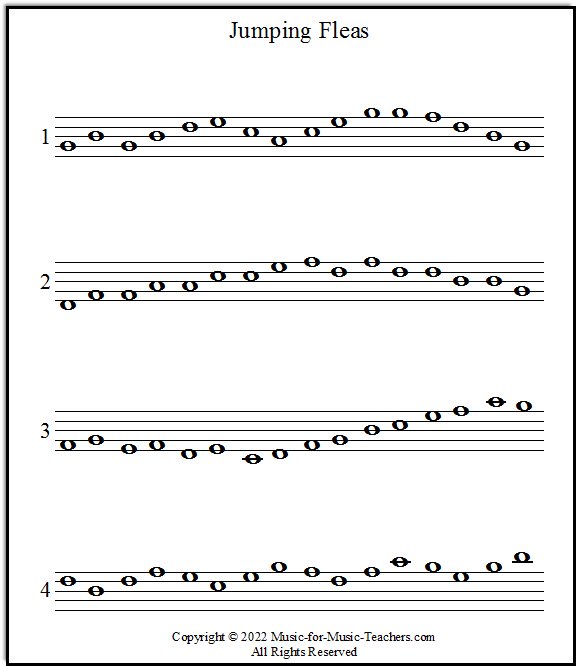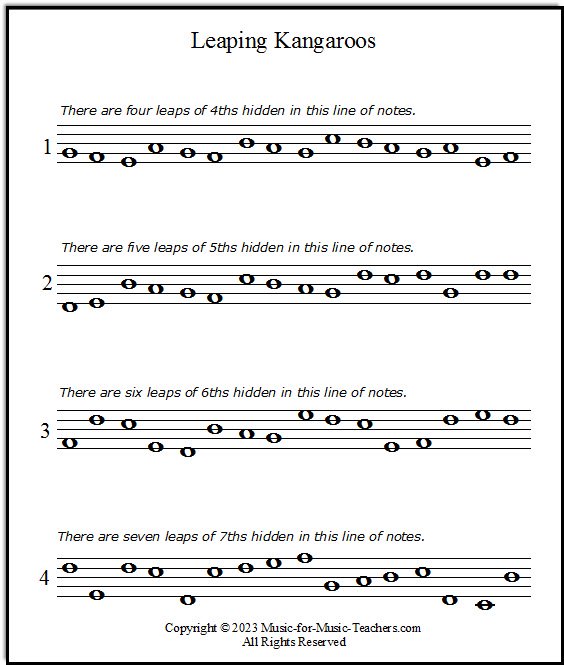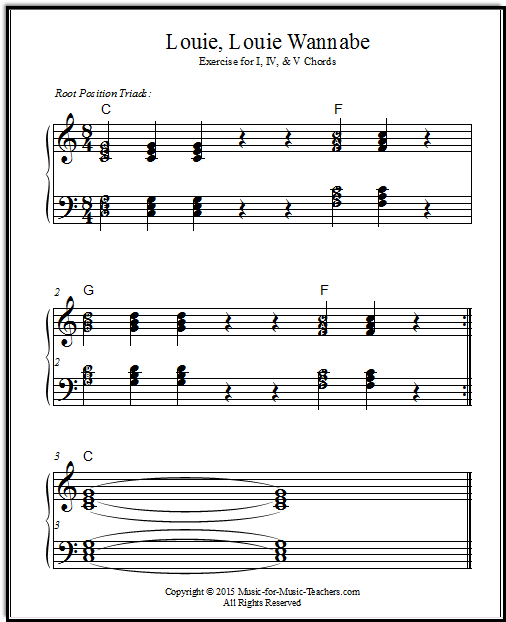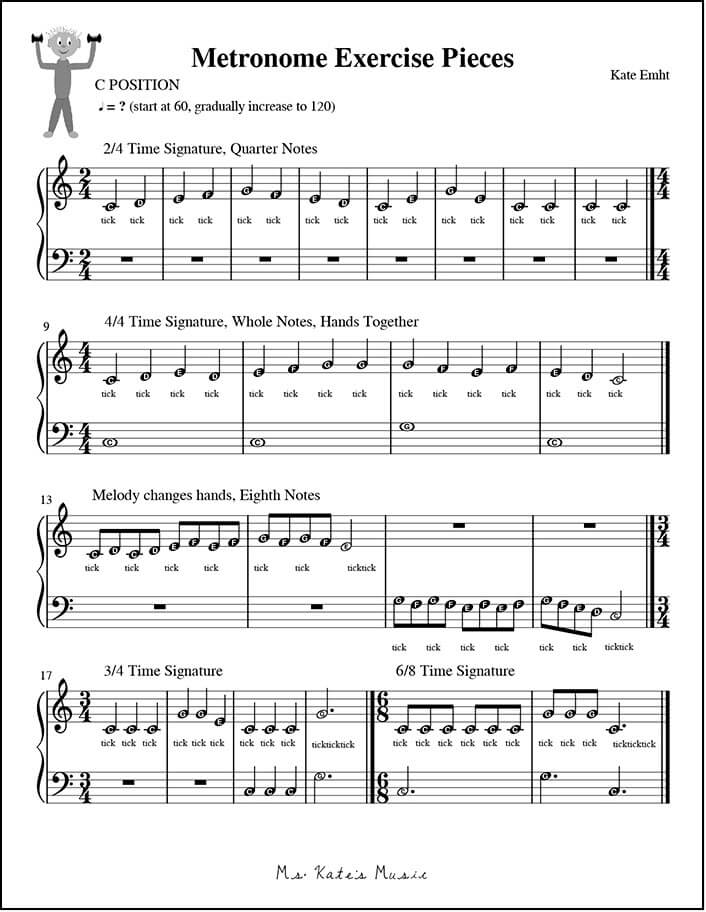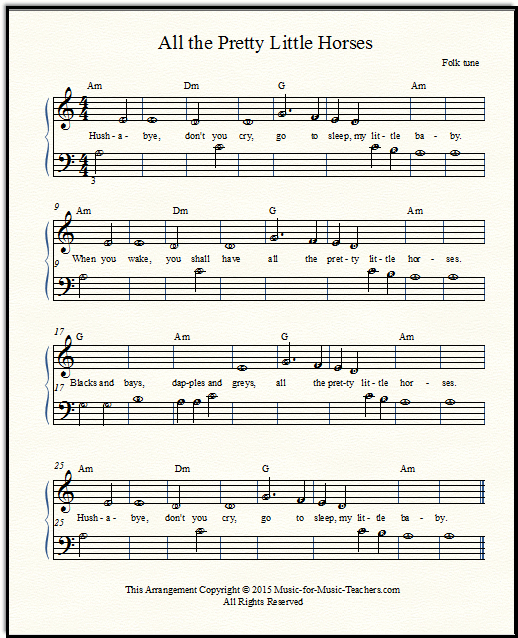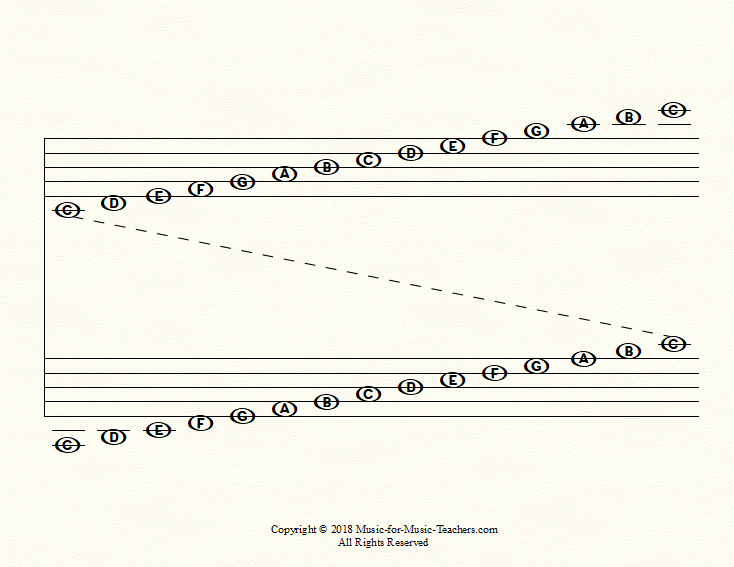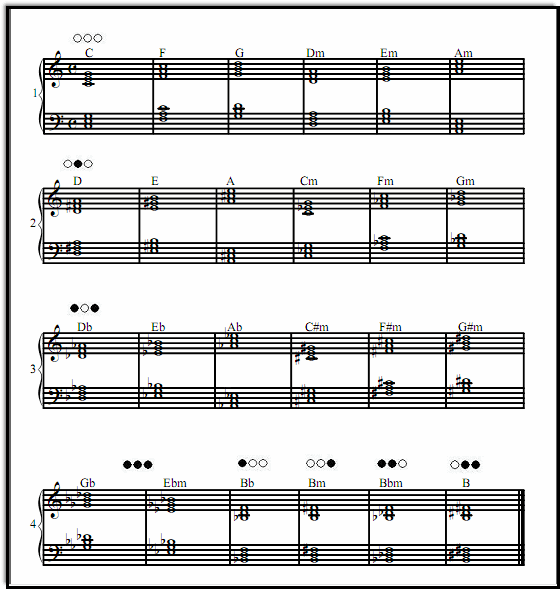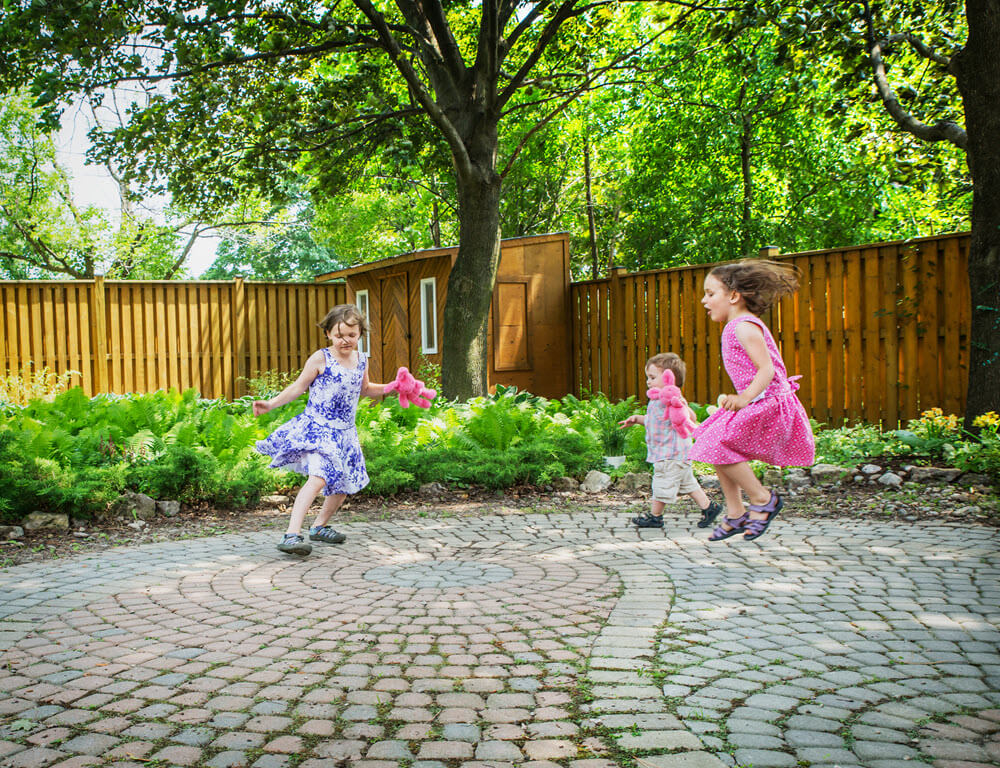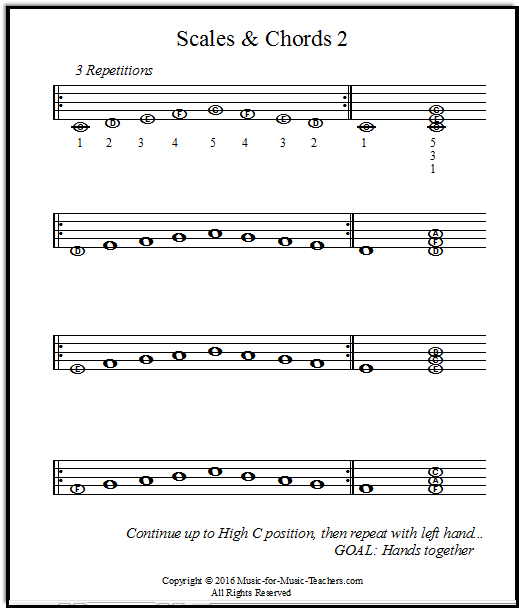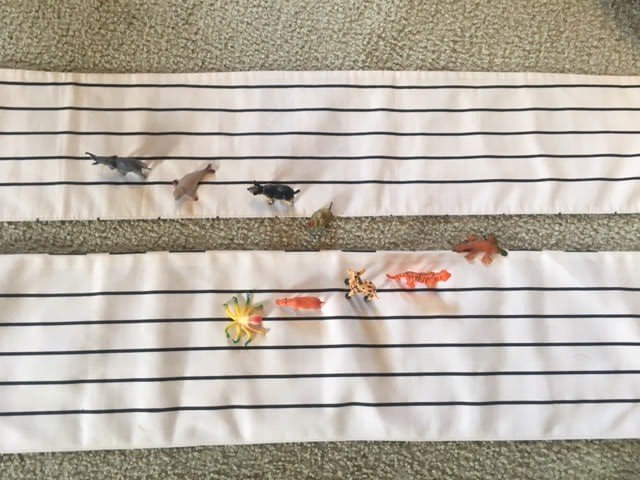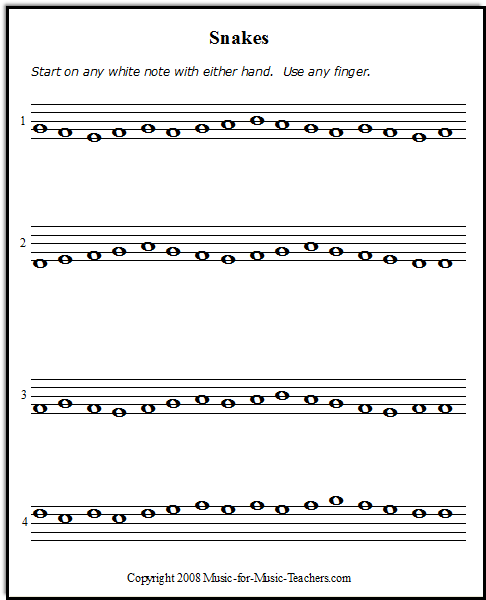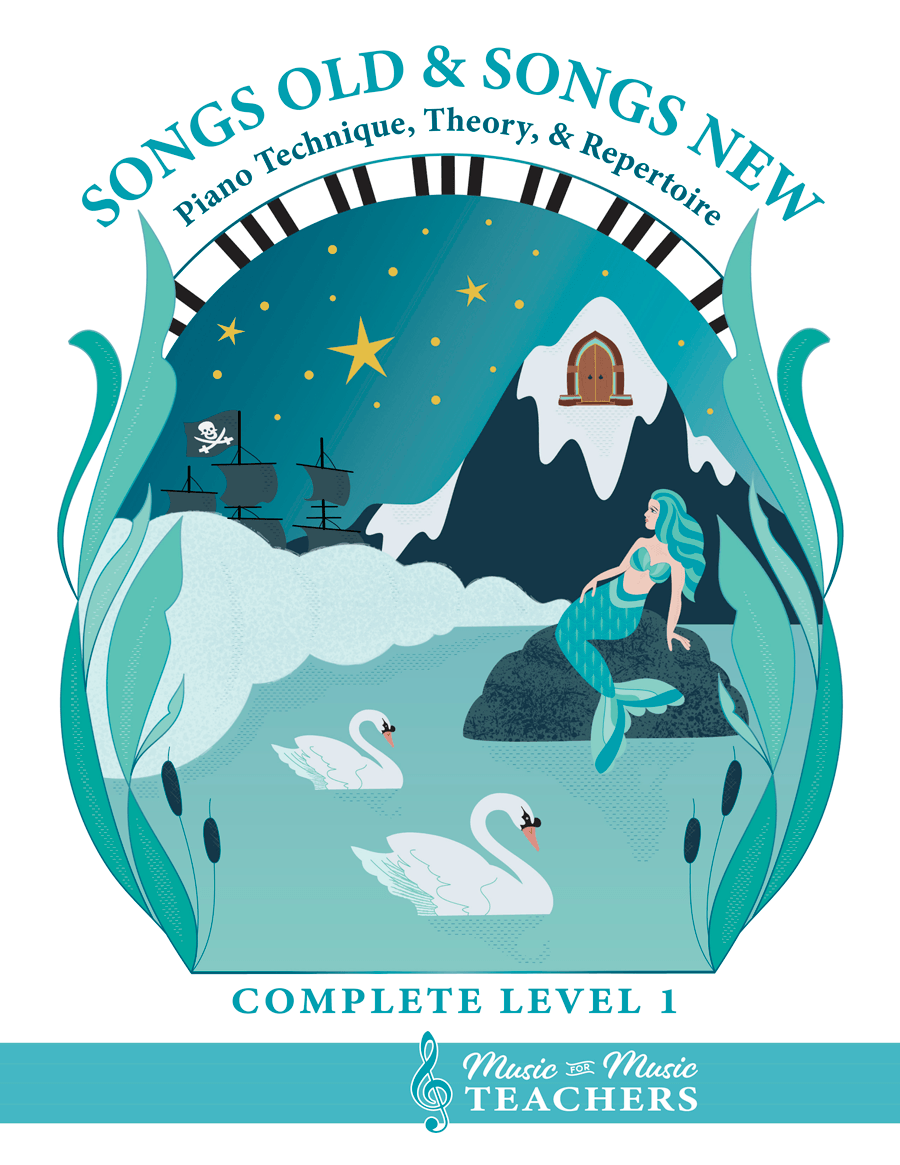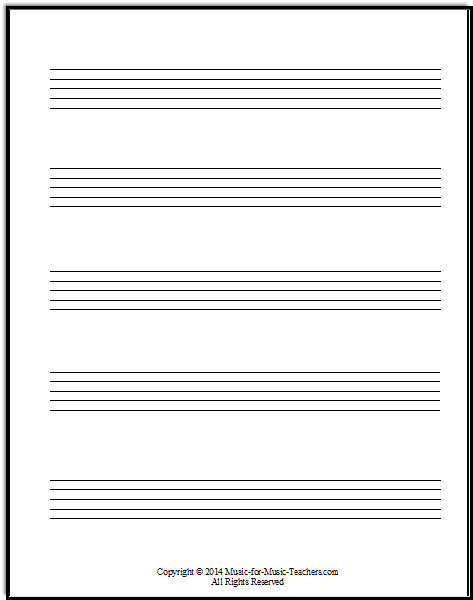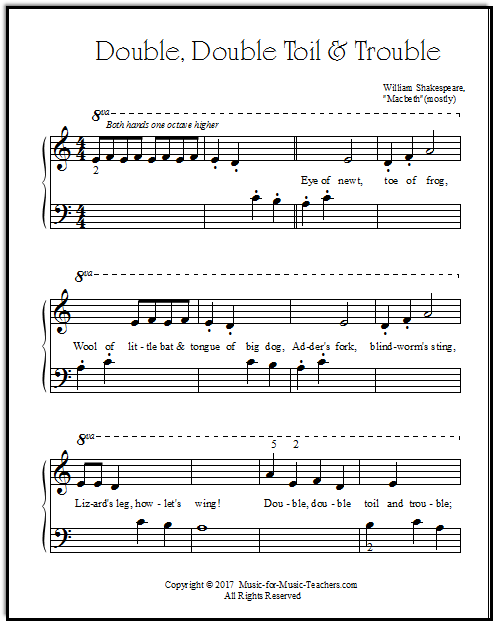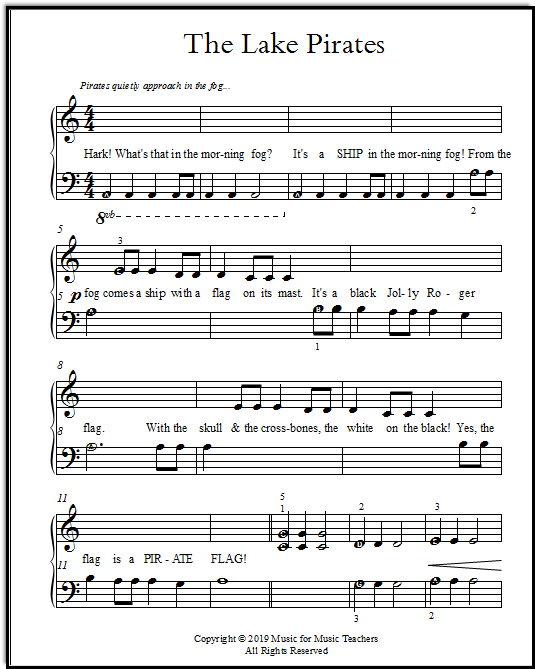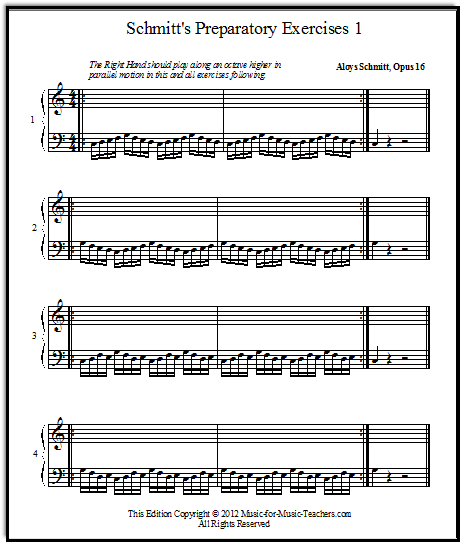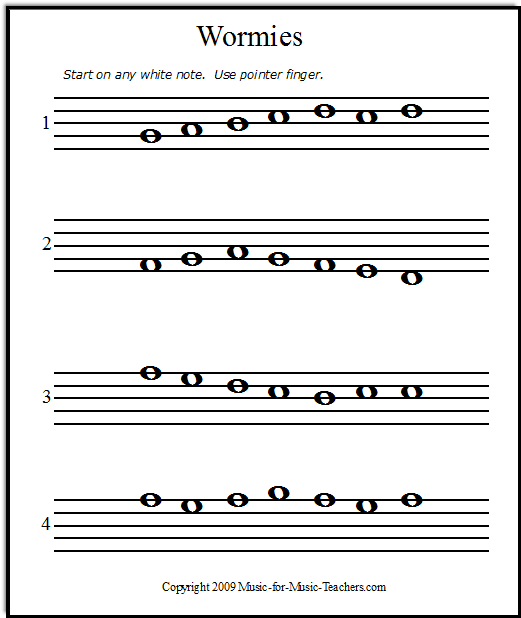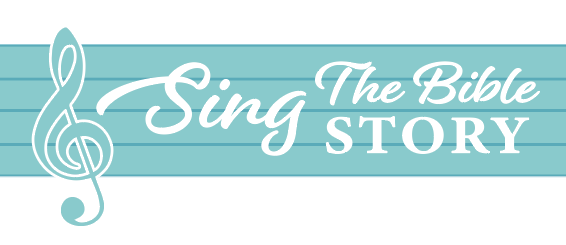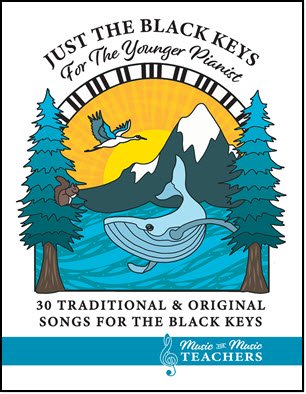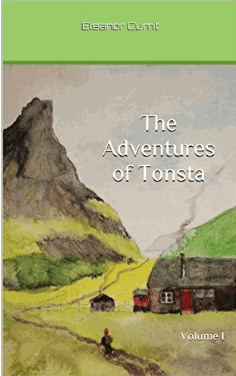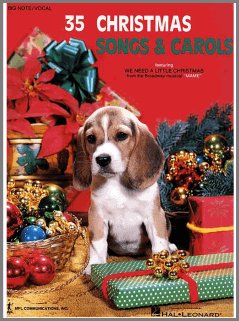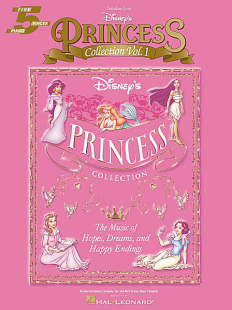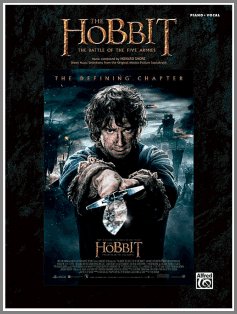Rote Learning...
Is This How to Teach Music to Piano Students?
Rote learning - is this how to teach music? Only sometimes, but it can be fun for you and your student! It is frequently the way I will start a student on a famous theme with a short motif, such as Bach's Toccata in Dm, or Hark How the Bells.
Last week a young student asked me if I had any music by Rossini. Yes, this is an unusual request from a little girl! Turns out, she and her classmates in school have been watching " Rossini's Ghost " a family-friendly movie that introduces viewers to Rossini, his music and his times through an engaging story.
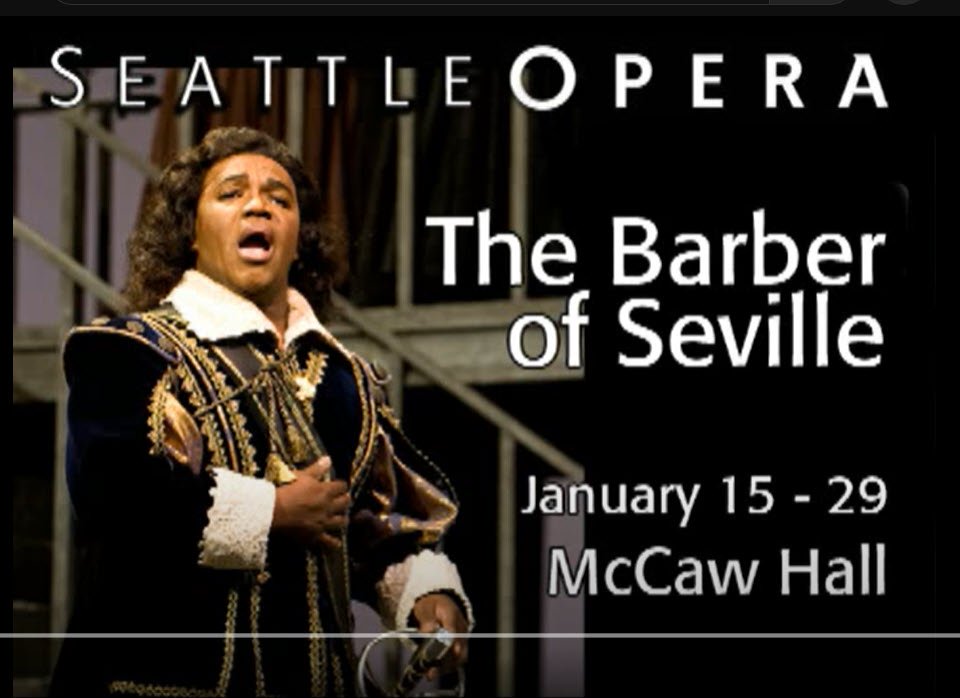
I told my student I would look into it this week.
I had a pretty good feeling that I wasn't going to be able to find anything like what she wanted that was written for her level of reading (at least, that would still be interesting enough for her to play).
Besides, so often kids just want a taste of something they are interested in, and they turn reluctant when you try to push a new book at them that they know their folks will have to pay for.
The solution? A little teaching by rote, or "rote learning", as it is known!
So of course I went to YouTube and typed in "Barber of Seville."
Lots there! I ended up listening to one version of the overture several times over (plus several videos of Bugs Bunny and Elmer Fudd set to Rossini's music), and decided that the exciting fast minor tune would please my student. That's the tune that goes:
eeefe (LONG REST) eeefe (LONG REST)
eeefe (REST) ddc (REST) bbaa
And that is just how I showed it to her. Instead of writing it out on staffs as sheet music, I just plunked out the tune on the piano (one hand at a time - actually, just one finger, my index finger!), and then wrote "eeefe" etc. on her lesson sheet to help her remember.
This is a stress-free, no-pressure approach to learning the song that I call rote learning for the piano.
I chose the key of Am because there are few or no black notes to worry about. After I played that bit of the theme from the Barber of Seville, I showed her that an easy left hand part was possible too, in which two notes, A and C, are played together:
c c c c c c c
a a a a a a a
Listen to the first 10 - 15 seconds of this video of excerpts from the 2011 Seattle Opera presentation of the Barber of Seville -- the tune I gave my student is barely there before the actor begins with "Figaro, Figaro, Figaro..."
My student will probably want to add to this piece bit by bit, very slowly with one new change or addition each week over the next couple of months until she is satisfied.
I have found that this is a pleasant way for my students to learn new music they desire that I either do not have, or that I know is too difficult for their reading level. Just a little bit goes a long way.
The same student is playing Pachelbel's Canon, (by rote learning!) which she also requested -- I would not have thought of it for her, as she is still in the Piano Adventures Primer Lesson Book.
As with The Barber of Seville, it is with rote learning that she is absorbing this piece.
Showing her how to play the "canon" was fun; first I explained to her that a canon is not related to cannon balls or explosives, but that it is a pattern that repeats over and over again. Then I showed her the pattern (in the key of C instead of D, the original): C, G, A, E, F, C, F, G, start over.
But what I also showed her, to help her memory, is that there is a pattern, at least to my mind... here is how I say it to myself, in rhythm with the music:
"C -- down 4, up 1, down 4, up 1, down 4, turn around (up 4 to F), up 1, start over (and you should be back at C)"...
Once she had memorized that pattern and could play it one note at a time with her left hand (one week), I suggested that she add chords in the right hand to go with the left hand notes. She can already play broken chords well, so she got it right away:
Left hand: C then: Right hand: c, e, g
LH: G then: RH: g, b, d
LH: A then: RH: a, c, e
and so forth. Of course if you wish to identify the chords by their correct names, Am and Em are what you must call the chords when the LH goes for A & E.
This kind of rote learning is good practice for the ear, is immediately engaging for young students and new students who don't read a single note yet, and it even makes a nice break in routine for older piano students!
Music for Music Teachers has other great free resources for piano teachers! Take a look:
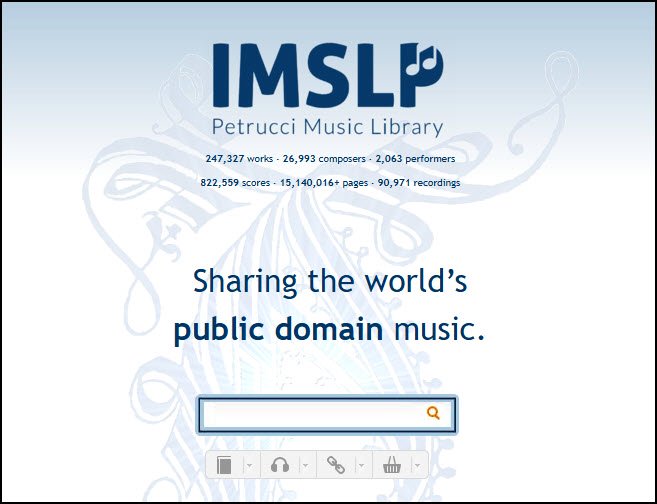
IMSLP -This link will take you off my site, to an international library of free classical sheet music.

Studio Favorite, currently! This changes from time to time.
"Passacaglia" is based on a piece by Handel, and it is NOT found on my website.
Dianna:
Your website is a light in the darkness. THANK YOU for all you do in helping to spread the love of music. It matters!
Recent Articles
-
Auld Lang Syne Sheet Music PDFs: for All Instruments & Singers!
Auld Lang Syne sheet music for New Year's Eve & other gatherings! Piano arrangements, guitar tabs, & lead sheets with chords in many keys, for all singers. -
Favorite Christmas Songs: Duet Vocal Sheet Music
The best duet Christmas songs are those ones you knew & loved as a child! This set of 14 "a capella" carols arranged for 2 voices is just right for caroling! -
"Walking In the Air" Piano Music from The Snowman
This sparkling piano arrangement of the main musical theme from The Snowman will win your students' hearts and imaginations, too, with its soaring beauty! -
Moonlight Sonata: How to Play Beethoven's Lovely Piece
Moonlight Sonata: How to play this beautiful but difficult piece full of black keys & triplets? With larger-than-usual notes, & letters inside the note heads! -
Classical Piano Sheet Music: a Set of Introductions
Classical piano sheet music - Fun, mostly one-page intros! Bach, Beethoven, Mozart & more - see what's new!
Interested in songs from the Bible for your students or church? Check out my other website, SingTheBibleStory.com!
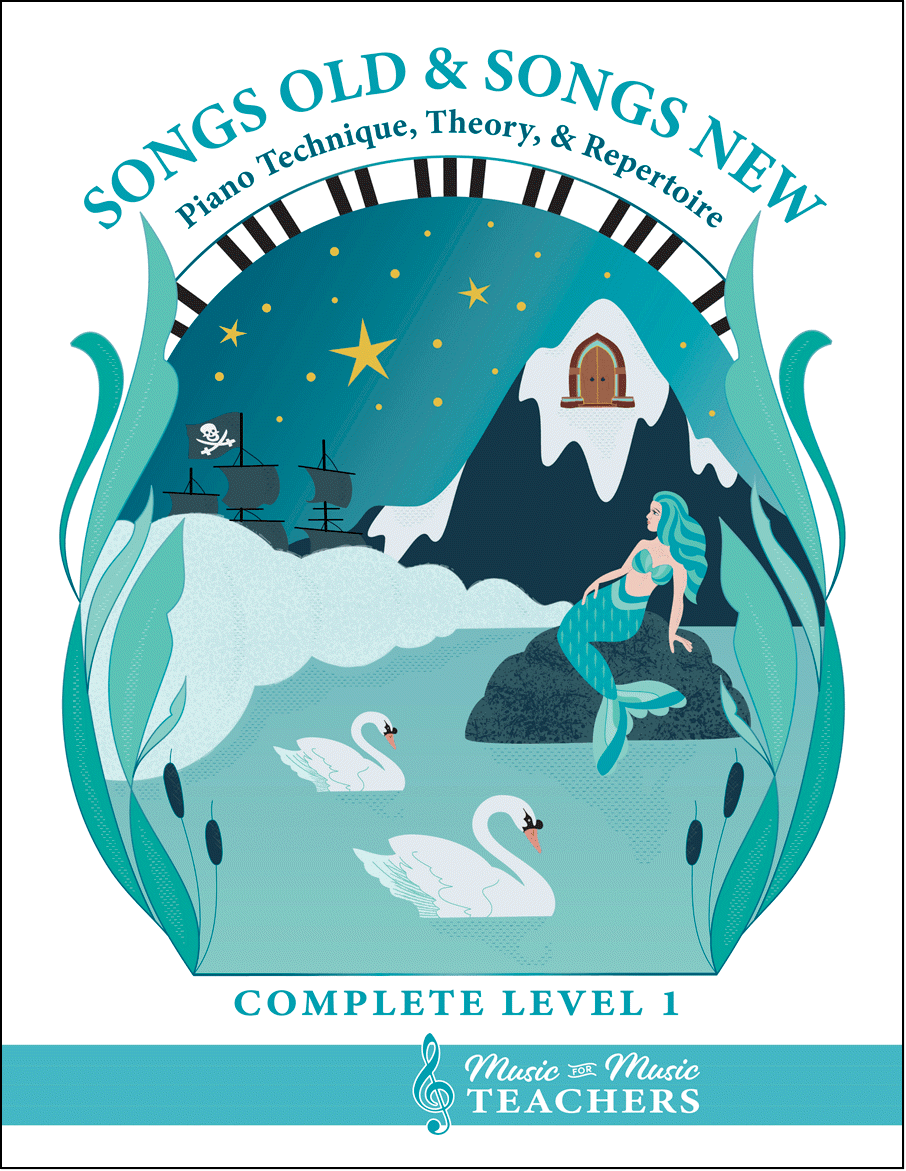
All the first-year material I give my beginner students.
Piano keyboard sheets, scales, chords, note-reading exercises, and over 256 pages of music!
Music-for-Music-Teachers.com is a participant in the Amazon Services LLC Associates Program. As an Amazon Associate I earn from qualifying purchases.
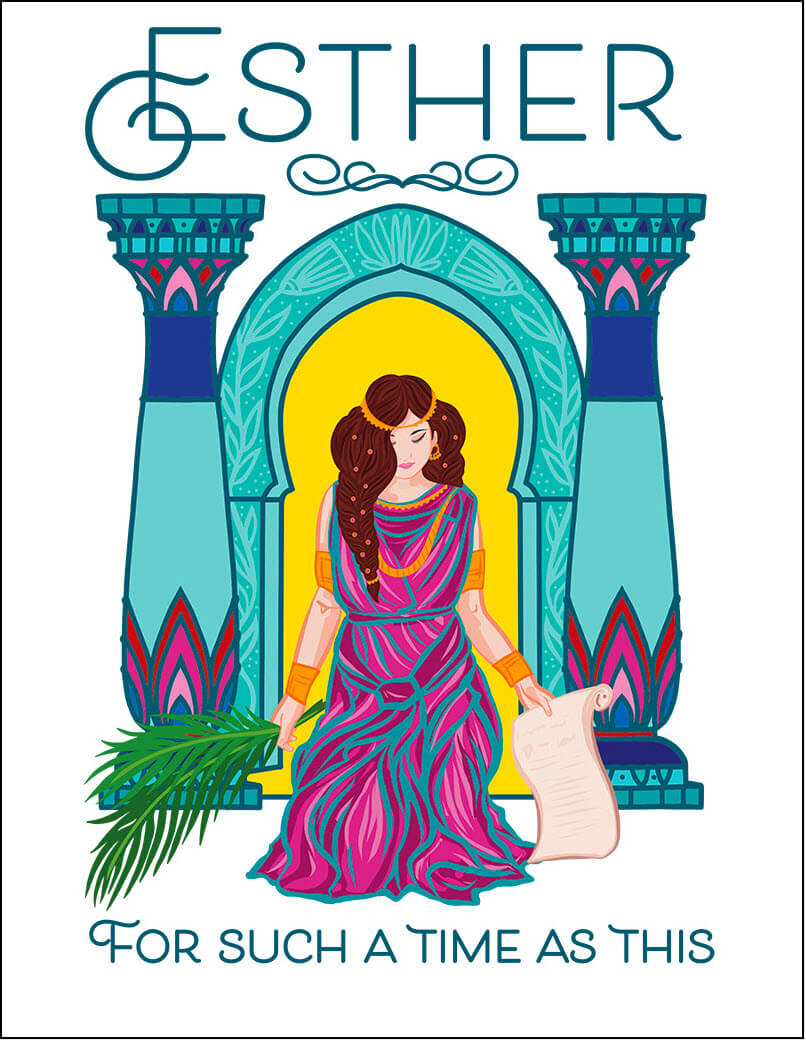
This beautiful song book for piano & voice "Esther, For Such a Time as This", available as a digital download, tells the riveting story of the time when Jews in ancient Persia faced a foe named Haman, and how a brave young queen risked her life to save her people.
A good choice for a singing story-teller, an operatic group, a short theater production, or a class of children!
This book is also available from Amazon as a paperback.
Music-for-Music-Teachers.com is a participant in the Amazon Services LLC Associates Program. As an Amazon Associate I earn from qualifying purchases.
This book is available as a digital download from this site. Visit this page to see some free examples from the book.
It is also available from Amazon as a paperback!
This is the perfect easy start for little pianists.
And when they start reading white-key notes on the staff, this is a fun easy resource to say each week, "Choose a new black-key song at home this week and figure it out to show me next lesson!" They will be spending more time at the piano.
Music-for-Music-Teachers.com is a participant in the Amazon Services LLC Associates Program. As an Amazon Associate I earn from qualifying purchases.
A perfect read aloud storybook
for little boys or girls.
The Adventures of Tonsta highlight the travels of a very young boy with a good heart, who goes about helping folk in trouble.
With a red cap on his head and a sack of tools slung over his shoulder, Tonsta seems to meet people in distress wherever he goes.
Lots of trolls in this book - including one who gives him a Christmas gift!
Music-for-Music-Teachers.com is a participant in the Amazon Services LLC Associates Program. As an Amazon Associate I earn from qualifying purchases.
Marta:
Thank you for the free downloads! I'm a private teacher and I teach piano and beginner voice as well. :)
I've been running my studio for about a year and I've come across the same issue; I don't want my students to have to purchase an entire supplemental book for only a couple of songs. So thank you for this site...some great downloads!!
Sue:
...like everyone, I'm trying to open ears, encourage the active use of eyes, develop reading skills, and above all, keep the musical spirits engaged. I've spent countless hours copying out simple tunes to supplement the published books. Your approaches and scores for the beginner will be invaluable!
Comments
Do you have a funny story about this music, or does it remind you of something you'd like to share with other readers? Do you have a question? I'd love to hear it!
Please note that all comments are moderated, and will not appear until I have approved them. Also, IF YOU ARE ASKING FOR MUSIC THAT IS NOT IN THE PUBLIC DOMAIN, YOUR REQUEST WILL BE IGNORED. That's pretty much any music written in the last 75 years...
About the Author

Hi, I'm Dana! (Say that like "Anna".) I'm the owner of Music-for-Music-Teachers.com, and a newer site, SingTheBibleStory.com.
Like some of you, I've been playing the piano since early childhood, and have added a few other instruments along the way, plus an interest in arranging and composing music.
You can find out more about me and the reason for this website at my About Me page.
